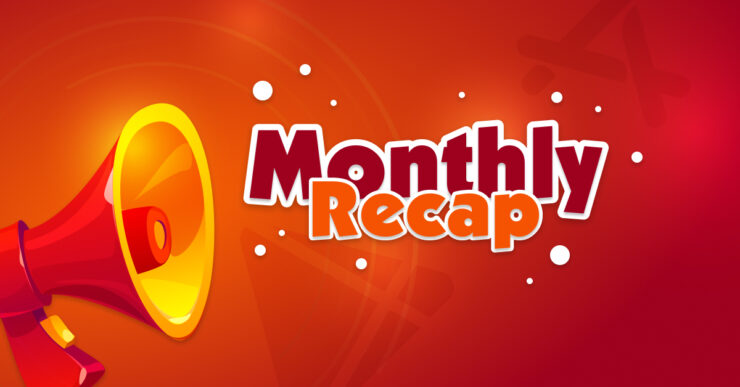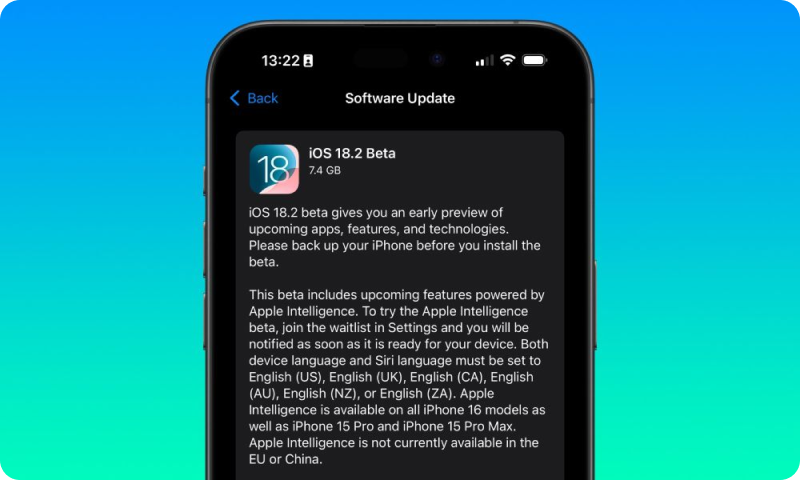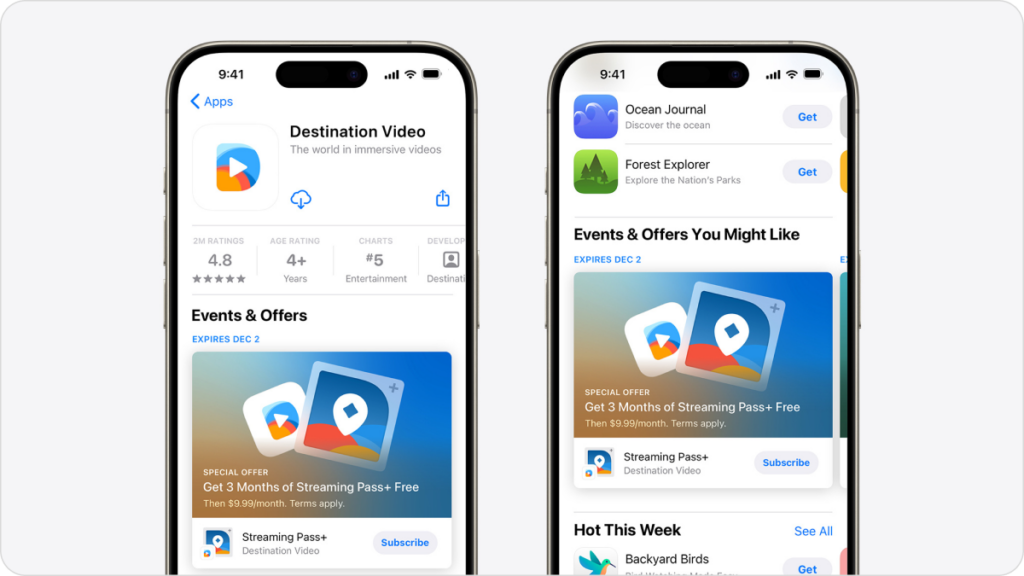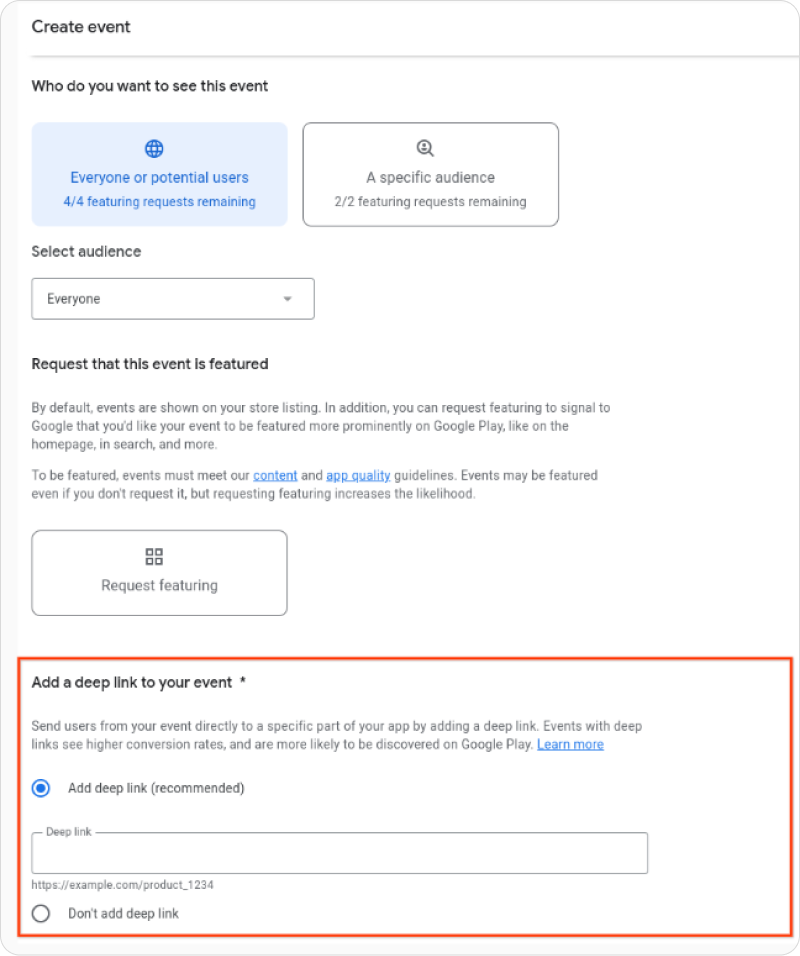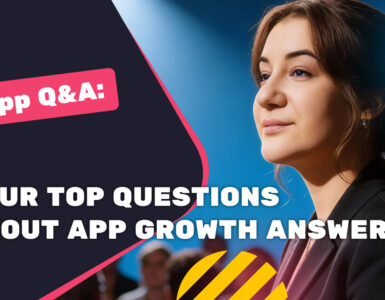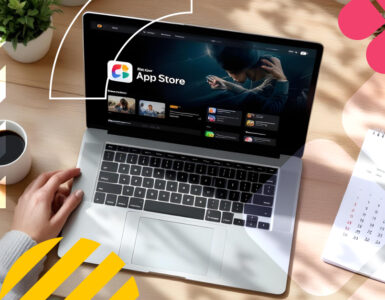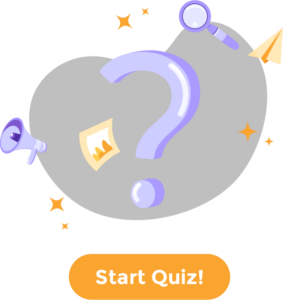It’s no secret that both Google Play and the App Store are dynamic platforms, continuously evolving with updates that impact mobile app marketing strategies. From algorithm changes to policy updates, each shift can influence app rankings, discoverability, and even the types of apps that gain traction.
Our team is dedicated to staying on top of these updates and monitoring any shifts that could affect your app’s performance. By keeping a close eye on both stores, we’re able to quickly adjust and fine-tune our promotion strategies, ensuring we leverage each update to optimize your app’s visibility, ranking, and organic growth potential. This proactive approach allows us to maintain flexibility and effectiveness, adapting quickly to maximize the benefits of new store changes and trends.
AppStore
1. iOS 18.2 Beta Release
Apple has released the first beta of iOS 18.2, available for the iPhone 15 Pro, Pro Max, and the iPhone 16 series. This update, aimed at enhancing Apple Intelligence, includes key features for select devices.
The iOS 18.2 beta is part of a phased rollout, with additional beta versions expected before a mid-December final release. iOS 18.1, however, is set for official release on October 28.
iOS 18.2 Key Features
Visual Intelligence: This iPhone 16-only feature allows users to learn about objects and locations through the camera control button, providing insights like restaurant reviews, event details, and even dog breed identification, with added options for Google and ChatGPT-based search.
ChatGPT-Siri Integration: Siri now offers an integrated ChatGPT feature for richer, image-based responses. Since Apple introduced its AI suite, Apple Intelligence, earlier this year, one of the most anticipated features has been integrating Siri and ChatGPT. Essentially, when Siri encounters complex queries it can’t answer, it relies on ChatGPT to generate responses. This integration is expected to enrich user interactions, making Siri more capable of detailed, context-based answers.
2. Apple adds win-back offers
Apple introduced new “win-back” offers for app developers to encourage users to return to their subscriptions. This new option, launched via App Store Connect, allows developers to reach former users with customized offers aimed at renewing their interest.
Apple designed the win-back offers to target eligible users who previously held a subscription but may have downgraded or switched to a free version. These offers will be visible on various App Store locations, such as the app’s main page, the Today tab, and the Games and Apps sections, as well as directly within the app and in subscription settings. Additionally, developers can share these offers on external channels, including social media, by using a direct link to help re-engage users outside of the App Store environment.
This initiative was first previewed at WWDC in June and reflects Apple’s ongoing efforts to support app growth and user retention through App Store features.
3. Apple may create its own Games Store
According to sources from 9to5Mac, Apple is developing a new app that brings together features of the App Store and Game Center into one integrated experience. This unified platform won’t replace Game Center but will incorporate its user profiles within a combined gaming hub.
The app will feature several sections like “Play Now,” “My Games,” and “Friends’ Games,” offering game recommendations, challenges, leaderboards, and achievements. It’s set to showcase a mix of titles from both the App Store and Apple Arcade, as well as special gaming events and key updates. This approach is expected to create a more immersive and centralized experience for iOS gamers.
4. iPhone users in the EU can now delete the iOS App Store
Apple has announced a new option allowing iPhone users in the EU to uninstall the App Store and several default apps as part of compliance with European regulations. This update, part of iOS 18.2, reflects efforts to align with the EU’s Digital Markets Act (DMA), which promotes the use of third-party applications. Users now can remove pre-installed apps such as Calculator, Calendar, Music, Notes, Camera, Safari, Messages, and Photos.
To reinstall the App Store, users can access a recovery button in their settings. While Apple has historically defended its ecosystem, these changes show the company’s flexibility in adapting to evolving regulations.
Google Play
Google has announced that app developers can now incorporate deep links into their promotional content. This enhancement allows users to be directed to specific areas within an app when accessing it through an event or link.
To optimize the effectiveness of these deep links, Google emphasized the importance of maintaining consistency and usability as key practices for developers. By ensuring that the links lead to relevant and easily navigable sections of the app, user experience can be significantly improved:
“When creating a deep link for your promotional content, keep in mind the following best practices:
- Consistency: Deep link destination pages should help fulfill user expectations of promotional content by allowing users to advance in participating in an event, redeeming an offer, or learning more about new features or new content. Ensure that the deep link destination page is consistent with the promotional content event details including the name and description of your event, new content, new feature, or offer.
- Usability: Ensure that the deep link destination page is intuitive and user-friendly, and avoid linking to pages that contain confusing layouts or unclear navigation for how to engage with your event.”
Sum Up
To sum up, recent updates from both Google Play and the App Store bring notable shifts that can affect app launches, marketing strategies, and algorithm performance. Keeping track of these updates is essential for refining promotional efforts and sustaining growth in app visibility. By staying aware of these developments, developers and marketers can respond flexibly and adjust their approaches to maintain a competitive edge in the app market.

